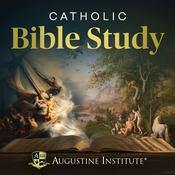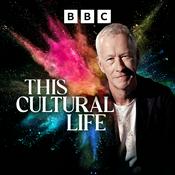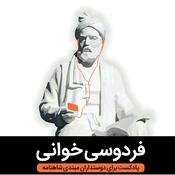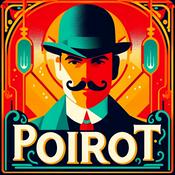76 Episoden

#76- The Bill of Rights
11.2.2025 | 4 Min.
The Bill of Rights The Bill of Rights is the first 10 Amendments to theConstitution of The United States, it was ratified on December 15, 1791.The Bill of Rights spells out Americans’ rights in relationto their government. It guarantees civil rights and liberties to theindividual—like freedom of speech, press, and religion. It sets rules for dueprocess of law, and reserves all powers not delegated to the Federal Governmentto the people or the States. And it specifies that “the enumeration in theConstitution, of certain rights, shall not be construed to deny or disparageothers retained by the people.” The First Amendment provides several rights protections: toexpress ideas through speech and the press, to assemble or gather with a groupto protest or for other reasons, and to ask the government to fix problems. Italso protects the right to religious beliefs and practices. It prevents thegovernment from creating or favoring a religion. The Second Amendment protects the right to keep and beararms. The Third Amendment prevents government from forcinghomeowners to allow soldiers to use their homes. Before the Revolutionary War,laws gave British soldiers the right to take over private homes. The Fourth Amendment bars the government from unreasonablesearch and seizure of an individual or their private property. The Fifth Amendment provides several protections for peopleaccused of crimes. It states that serious criminal charges must be started by agrand jury. A person cannot be triedtwice for the same offense or have property taken away without justcompensation. People have the right against self-incrimination and cannot beimprisoned without due process of law. The Sixth Amendment provides additional protections topeople accused of crimes, such as, the right to a speedy and public trial, incriminal cases, trial by an impartial jury, and to be informed of criminalcharges. Witnesses must face the accused, and the accused is allowed his or herown witnesses and to be represented by a lawyer. The Seventh Amendment extends the right to a jury trial inFederal civil cases. The Eighth Amendment bars excessive bail and fines and a crueland unusual punishment. The Ninth Amendment states that listing specific rights inthe Constitution does not mean that people do not have other right, that havenot been spelled out. The Tenth Amendment says that the Federal Government onlyhas those powers delegated in the Constitution. If it isn’t listed, it belongsto the states or to the people.

# 75 – An American singer-songwriter
22.6.2022 | 7 Min.
# 75 – An American singer-songwriter Neil Leslie Diamond- is an American singer-songwriter, born in 1941, he is in the Rock and Roll Hall of Fame, and he received the Grammy Lifetime Achievement Award in 2018. For his 16th birthday, he got as a gift, his first guitar and started to take lessons, and almost immediately began to write songs. He said that his attraction to songwriting was the "first real interest" he had growing up, while also helped him release his youthful frustrations. Neil Diamond also used his newly developing skill to write poetry, by writing poems for girls he was attracted to in school, he soon learned it often won their hearts. His male classmates took note and began asking him to write poems for them, which they would sing and use it with equal success. In January 2018, Neil Diamond announced that he would stop touring because he was diagnosed with Parkinson's disease. Tour dates on the final leg of the Diamond's "50 Year Anniversary World Tour" in Australia and New Zealand were cancelled. "Forever in Blue Jeans", co-written and jointly composed with his guitarist, Richard Bennett. Money talks But it don't sing and dance And it don't walk Long as I can have you Here with me, I'd much rather be Forever in blue jeans Honey's sweet But it ain't nothin' next to baby's treat (are not nothing) And if you pardon me I'd like to say ( I would like) We do okay Forever in blue jeans Maybe tonight Maybe tonight by the fire All alone you and I Nothing around But the sound of my heart And your sighs Money talks But it can't sing and dance And it can't walk And long as I can have you Here with me, I'd much rather be Forever in blue jeans, babe And honey's sweet But it ain't nothin' next to baby's treat And if you pardon me, I'd like to say We do okay Forever in blue jeans Maybe tonight Maybe tonight by the fire All alone you and I Nothing around But the sound of my heart And your sighs Money talks But it don’t sing and dance And it don't walk Long as I can have you Here with me I'd much rather be Forever in blue jeans And if you pardon me I'd like to say ( I would like) We do okay Forever in blue jeans babe long as I can have you Here with me I'd much rather be Forever in blue jeans, babe As long as I can have you Here with me I'd much rather be Forever in blue jeans, babe

# 74 - CICERO
16.6.2022 | 4 Min.
Marcus Tullius Cicero was born in 106 BC in a small municipality of Arpinum, 100 kilometers from Rome – He was assassinated in 43 BC, in Rome, at the age of 63. His mother was a housewife, and his father was a well-to-do member of the equestrian order, a wealthy landowner who possessed good connections in Rome. Cicero was a Roman statesman, lawyer, scholar, and philosopher. His extensive writings include treatises on rhetoric, philosophy, and politics. He is considered one of Rome's greatest orators and prose stylists. During his time in Roman history, "cultured" meant being able to speak both Latin and Greek. Cicero was therefore educated in the teachings of the ancient Greek philosophers, poets, and historians, he obtained much of his understanding of the theory and practice of rhetoric from the Greek poet Licinius Archias, and from the Greek rhetorician Apollonius Molon. Cicero used his knowledge of Greek to translate many of the theoretical concepts of Greek philosophy into Latin, thus translating Greek philosophical works for a larger audience. It was precisely his broad education that tied him to the traditional Roman elite. Cicero introduced into Latin, the arguments of the chief schools of Hellenistic philosophy, and created a Latin philosophical vocabulary with neologisms such as: evidentia, humanitas, qualitas, quantitas, and essentia, distinguishing himself as a translator and philosopher. Cicero has been traditionally considered the master of Latin prose. Quintilian, a well know Roman educator declared, that Cicero was "not the name of a man, but of eloquence itself. The English word Ciceronian (means "eloquent") derive from his name. He is credited with transforming Latin from a modest utilitarian language into a versatile literary medium, capable of expressing abstract and complicated thoughts with clarity. Though, he was an accomplished orator and successful lawyer, Cicero believed his political career was his most important achievement. Following Gaius Julius Caesar's death, Cicero became an enemy of Mark Antony, who view Cicero as an enemy of the state, consequently, Cicero was executed. Today Cicero is appreciated primarily for his humanism and philosophical and political writings. His voluminous correspondence, much of it addressed to his friend Atticus, this correspondence has been especially influential, for introducing the art of refined letter writing, to the European culture. According to John William Mackail, the reformer of the British education system "Cicero's unique and imperishable glory is that he created the language of the civilized world and used that language to create a style, which nineteen centuries have not replaced, and in some respects have hardly altered.

# 73 - PARKISONS
16.6.2022 | 4 Min.
PARKISONS DISEASE Parkinson’s is a progressive, degenerative disease that affects nervous system function, according to the Mayo Clinic. The nerve cells in the brain, called neurons, progressively malfunction, or die off. This, in turn, prevents the brain from producing enough dopamine, a chemical that acts as a messenger for brain signal that control movement, coordination and other key functions. Parkinson’s is most seen in adults older than 50 and is more frequent in men than women. Doctors aren’t totally sure why people get Parkinson’s, there is evidence, that genetics may play a role in some cases, other risk factors, may include repeated head trauma and exposure to certain chemicals or heavy metals. Parkinson’s has four main symptoms: Tremor in hands, arms, legs, jaw, or head. Muscle stiffness, where muscle remains contracted for a long time. Slowness of movement. Impaired balance and coordination, sometimes leading to falls. People with Parkinson's disease often develop a parkinsonian gait that includes a tendency to lean forward; take small quick steps; and reduce swinging of their arms. They also may have trouble initiating or continuing movement. Several disorders can cause symptoms similar to those of Parkinson’s disease. People with Parkinson’s-like symptoms that result from other causes, such as multiple system atrophy and dementia, are sometimes said to have parkinsonism. While these disorders initially may be misdiagnosed as Parkinson’s, certain medical tests, as well as response to drug treatment, may help to better evaluate the cause. Many other diseases have similar features but require different treatments, so it is important to get an accurate diagnosis as soon as possible. There is currently no cure for Parkinson’s, although medications that mimic or enhance the effects of dopamine, in conjunction with physical therapy, diet and exercise intervention, may help reduce symptoms, according to the Mayo Clinic. In advanced cases, doctors may also implant signal-carrying electrical sensors into the brain in hopes of mitigating some symptoms. Though it can’t be cured, Parkinson’s itself is not fatal, the University of Maryland Medical Center notes. That said, complications from the disease — including decreased motor function and impaired swallowing — can shorten a person’s lifespan.

# 72 - HINDUISM
09.3.2022 | 5 Min.
Unlike other religions, Hinduism has no one founder but is instead a fusion of various beliefs. It is believed that Hinduism started between 2300 B.C. and 1500 B.C., but many Hindus argue that their faith is timeless and has always existed. Hinduism accepts many different religious ideas, most of the people that follow Hinduism believe that there are many paths to reach their god; even though, they worship a single deity known as Brahman, and have many sects, they still respect other gods and goddesses. The Hindus code of living emphasizes good conduct and morality. They believe in the continuous cycle of life, death, (reincarnation) and in the universal law of cause and effect (karma), and that all living creatures have a soul, and all these souls, are all part of the supreme soul. The goal is to end the cycle of rebirths to become part of the absolute soul. Food is an important part of life for Hindus. they consider the cow to be a sacred animal, most of them do not eat beef or pork, many are vegetarians. The Hindu ancient texts and Vedas are full of amazing stories about different gods, their extraordinary powers, and battles that took place a millennia ago. It describes gods who fight against evil forces on flying crafts called VIMANAS. These Vimanas are consistently described as weapons of war. They are flying machines, some Vimanas were made to travel locally from one place to the other, to different countries, some flying machines were used to travel to various planets. The text Describes that, there were four types of Vimanas some were saucer-shaped, others were cylinder-shaped and had the ability to maneuver both under water and in outer space. These Vimanas were non-combustible, unbreakable, very effective on the offensive and were also invisible to the enemies. They were, able to render enemies, into a suspended animation state, and cause widespread destruction. The Mahabharata, a Hindu epic, provides even more detail on Vimanas. It says, “The ancient Indian king Salva acquired the flying machine from Maya Danava, who was a resident of a planetary system named Taltala”. The Vimana flew in the sky, rested on the hill, and floated on the water. There are drawing instructions and detail as to the metal construction of Vimanas, their use of mirrors, and lenses, and the defenses offered by several Vimanas types. The existence of this text was revealed by G.R. Josyer the founder of the International Academy of Sanskrit Research who said that Pandit Subbaraya Shastry had dictated it to him from 1918 to 1923. The epic Mahabharata and the Bhagavata Purana is written in Sanskrit, one of the oldest survived languages in the world. It also known to contain scientific information about embryology
Weitere Kunst Podcasts
Trending Kunst Podcasts
Über Easy English Texts
Höre Easy English Texts, Augen zu und viele andere Podcasts aus aller Welt mit der radio.at-App

Hol dir die kostenlose radio.at App
- Sender und Podcasts favorisieren
- Streamen via Wifi oder Bluetooth
- Unterstützt Carplay & Android Auto
- viele weitere App Funktionen
Hol dir die kostenlose radio.at App
- Sender und Podcasts favorisieren
- Streamen via Wifi oder Bluetooth
- Unterstützt Carplay & Android Auto
- viele weitere App Funktionen


Easy English Texts
App laden,
loshören.


































